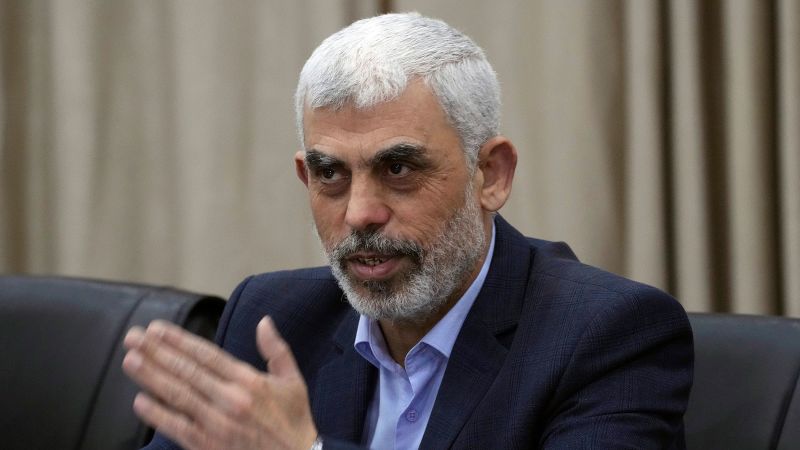In recent assessments, American intelligence officials believe that Yahya Sinwar, the leader of Hamas in Gaza, is confident in the group’s ability to survive Israel’s attempts to destroy it and is approaching negotiations from a position of strength.
Sinwar’s goal is for Hamas to survive and believes that the group can hold out while Israel’s global standing deteriorates during the ongoing conflict in Gaza.
According to a senior Biden administration official, Sinwar believes he is winning, which presents a discouraging assessment for US negotiators seeking a ceasefire deal between Hamas and Israel.
Secretary of State Antony Blinken emphasized that the fate of the latest proposal rests with Sinwar, as he is seen as the ultimate decision-maker within Hamas.
Despite pressure from the US on those influencing Hamas, Blinken made it clear that Sinwar is the key figure in decision-making within the group.
If Sinwar believes that Hamas can withstand the Israeli invasion, it suggests that he does not feel enough pressure to agree to a ceasefire despite ongoing civilian casualties.
According to The Wall Street Journal, Sinwar referred to the deaths of civilians as “necessary sacrifices” in messages reviewed by the paper, indicating his willingness to continue the conflict.
US officials have portrayed Sinwar as indifferent to Palestinian civilian casualties and focused on his own survival and interests within Hamas.
Sinwar, a key planner of the October 7 attack, remains elusive in Gaza’s tunnels, making it difficult for the US intelligence community to track him.
Despite challenges in reaching Sinwar, he continues to shape Hamas’ negotiation positions, potentially prolonging the conflict as messages are delayed.
Sinwar and Hamas’ top military official, Mohammed Deif, remain alive, suggesting that a significant portion of Hamas’ fighting force remains active despite Israeli claims of casualties.
Sinwar, a prominent figure in Hamas, has built up the group’s military wing and forged ties with regional Arab powers, becoming the de facto leader of Hamas’ Politburo.
Before the October 7 attack, regional polling indicated waning support for Hamas in Gaza, leading some analysts to believe the operation was intended to boost domestic backing.
Blinken emphasized that Hamas’ response to the ceasefire proposal will reveal the group’s priorities and commitment to ending the conflict for the benefit of Israelis and Palestinians.



